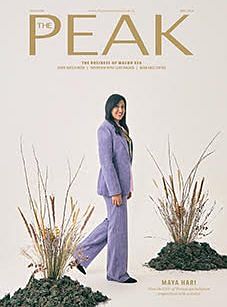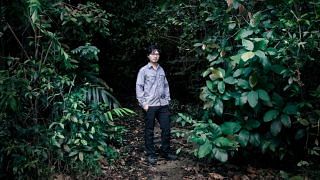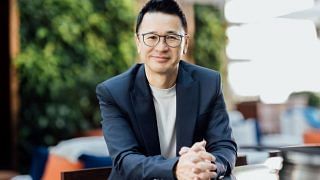While having a child can be a beautiful experience, the toll it takes on the mother is anything but lovely. For many Asian cultures, the confinement period is paramount to helping new mothers recover from childbirth. In countries like South Korea, Taiwan and China, this means checking into postnatal care centres that are more like hotels with expert services that help in the recuperation process.
While an established industry in the aforementioned countries, official postnatal care facilities are virtually unheard of in Singapore, where most women still use confinement nannies.
Breaking new ground in Singapore is Kai Suites, a luxury postnatal care facility that opened in mid-December. “We see this as an emerging trend in Asia but such a facility has been lacking in Singapore until now. The after-birth recovery expectation, as well as the lifestyle and spending power, are similar to places [like Taiwan and South Korea],” says founder Kevin Kwee.
In addition to offering guests well- appointed rooms, Kai Suites provides a holistic experience that combines a comprehensive support system with top-notch hospitality to ensure mothers and their newborn aren’t just supported but pampered as well. “It’s all about the details,” explains Kwee, who is also the executive director of Laguna National Golf & Country Club.
(Related: TCM goes modern to break new ground)
Such details start with things like the interior of the concept that combines a clean, Japanese-inspired look with wall features built from elements of the building’s previous incarnation as the – fittingly enough – office of the Singapore Family Planning and Population Board.
Every care has been taken to put guests and their babies at ease, including security and concierge services, the RFID (radio frequency identification) tagging of mothers, babies and cots, and camera surveillance of individual nursery cots mothers can easily access via their smartphones.
Meanwhile, to get the mothers looking and feeling their best, Kai Suites also has a salon, spa and an aesthetics clinic specialising in fixing changes due to pregnancy. And always on hand are Kai Suite’s team of highly qualified, experienced nurses.
The experience also combines traditional Asian practices and modern medical science. There’s a traditional Chinese medicine (TCM) practitioner to assess guests’ health, a specialised, TCM- based food programme and postnatal treatments such as lactation massages and bengkung belly binding that involves wrapping a post-partum women’s belly and hips for physical support and to help hasten the recovery process after childbirth.
“Unlike the past, when you needed to understand Chinese to learn about TCM, knowledge of it is now easily accessible in English as most practitioners are effectively bilingual. Also, we are seeing more non-Chinese communities taking an interest in TCM as well embracing its approaches and practices,” shares Kwee, who’s confident that the local market is ready to usher in this new standard of maternity care.
(Related: Fertility specialist Ann Tan nutures – both as a mother and a doctor)
Functional gastronomy
One of the most important parts of confinement is food. Each week following childbirth comes with different dietary requirements to promote the TCM belief that the body has to go through a course of healing, detoxification, restoration and nourishment. Culinary adviser David Yip and his team have sourced traditional and heirloom confinement recipes from around the world, as well as worked with nutritionists, TCM practitioners and even Michelin-starred chefs like Tomoo Kimura of Sushi Kimura and Vicky Cheng of VEA Restaurant & Lounge.
The result of their extensive research is a compendium of over 600 recipes for contemporary postnatal cuisine. What’s more, many combine different cultural traditions to great effect. “Korean confinement food was particularly interesting as it mostly comprises seaweed and tofu consumed for their nutritional benefits. We took these two key ingredients and featured them in dishes to suit the local palate such as Cantonese-style fish soup containing Korean seaweed and fish maw and garnished with ginger and garlic-infused oil,” says Yip.
Neither MSG nor artificial additives are used in the food. Many ingredients – from the oyster sauce and Hakka yellow wine to kaya and wheat noodles – are painstakingly prepared by the kitchen team from scratch. To avoid using raw produce like flowers or spring onions in garnishes, the culinary team works with infused oils and uses a wide range of naturally coloured ingredients. Why go to all this trouble? Yip’s goal is to present guests with food that “never repeats” during the length of their stay.
(Related: From yoga to massages, luxury confinement centres gain popularity in China)







